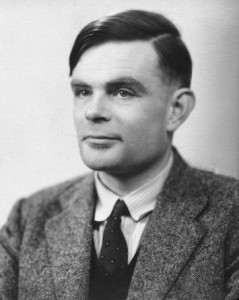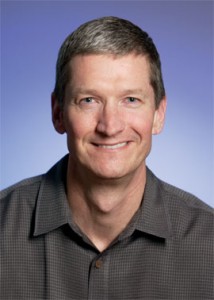
President Obama declared June to be LGBT Pride Month and so, I though it would be appropriate for us here at Cyborgology, to take a moment and recognize how LGBT peoples were foundational to the construction of cyborg studies and other inter/trans/multidisciplinary fields. I should note upfront that this incredibly brief summary, from a macro perspective, does some violence to the critical nuance of all the fields mentioned. I hope this post encourages further research, not angry comments about my (acknowledged) hurried treatment of the subject matter. Consider this more of a conversation-starter, than a stand-alone digest. I would also like to thank my good friend Naomi Ardjomandkermani for inspiring me to do this post. She does fantastic work with intersex communities on the web at http://intersexresources.moonfruit.com.
The work of Donna Haraway, the obligatory point of passage for talking about cyborgs and hybridity, explicitly deals with deconstructing and displacing concepts of gender and sex (and the intersection of the two). In chapter seven of Simians, Cyborgs, and Women (PDF) Haraway wrestles with the anglophone as well as the germanic semantics of the word “gender” within a marxist context. She notes that the very separation of “sex” from “gender” in English (compared to the single word geschlecht in German) “are part of the political history of the words.” This semantic artifact demands that feminists critically consider the validity and portability of pan-cultural or universalistic theories of gender. Her cyborg metaphor, and the post-modern project as a whole, is concerned with ripping apart these modern binaries and reconstituting gender as one uses to build their political relationships based on common “otherness” rather than externally imposed identities, i.e. affinity politics. This post-modern turn that came with third-wave feminism provided the necessary (but perhaps not sufficient) political and theoretical frameworks for expanding the feminist project into the fields of queer theory, LGBT(Q)(I) studies, and gender studies.
LGBT contributions to cyborgology are not limited to theory and analysis. It is important to note the LGBT people that have contributed enormouslyto related fields. Alan Turing, the father of computer science, was a gay man. Turing is credited with the theoretical underpinnings of modern computer science. Turing was subjected to chemical castration under UK’s indecency laws in 1952. He died two years later, in what was reported as a suicide-by-poisoning. Other notable LGBT computer scientists include Marshall “Kirk” McKusick (extensive contributions to BSD Linux), Eric Allman (developed sendmail and delivermail, the ARPANET ancestors of present-day email), Tim Cook (COO and acting CEO of Apple Computer) and Audrey Tang (linked page in Mandarin) (PERL 6 implementor). Its also worth watching the moving “It Gets Better” videos from Pixar, Google, Facebook and Apple employees.

Science fiction and comic books also have gay characters and authors. The wikipedia page for LGBT Themes in Speculative Fiction has an incredibly thorough list on the topic, but I encourage anyone who knows more on the topic to add to it. (What better time?)
Thanks to reddit user dharmatech for the list of LGBT computer scientists.

Comments 1
Bon — June 8, 2011
...i find all the overlaps in hybridity fascinating, but that may be from too many months of reading mostly Haraway and Judith Butler. i keep finding that while the topics are different the concepts and ontologies have huge overlap.